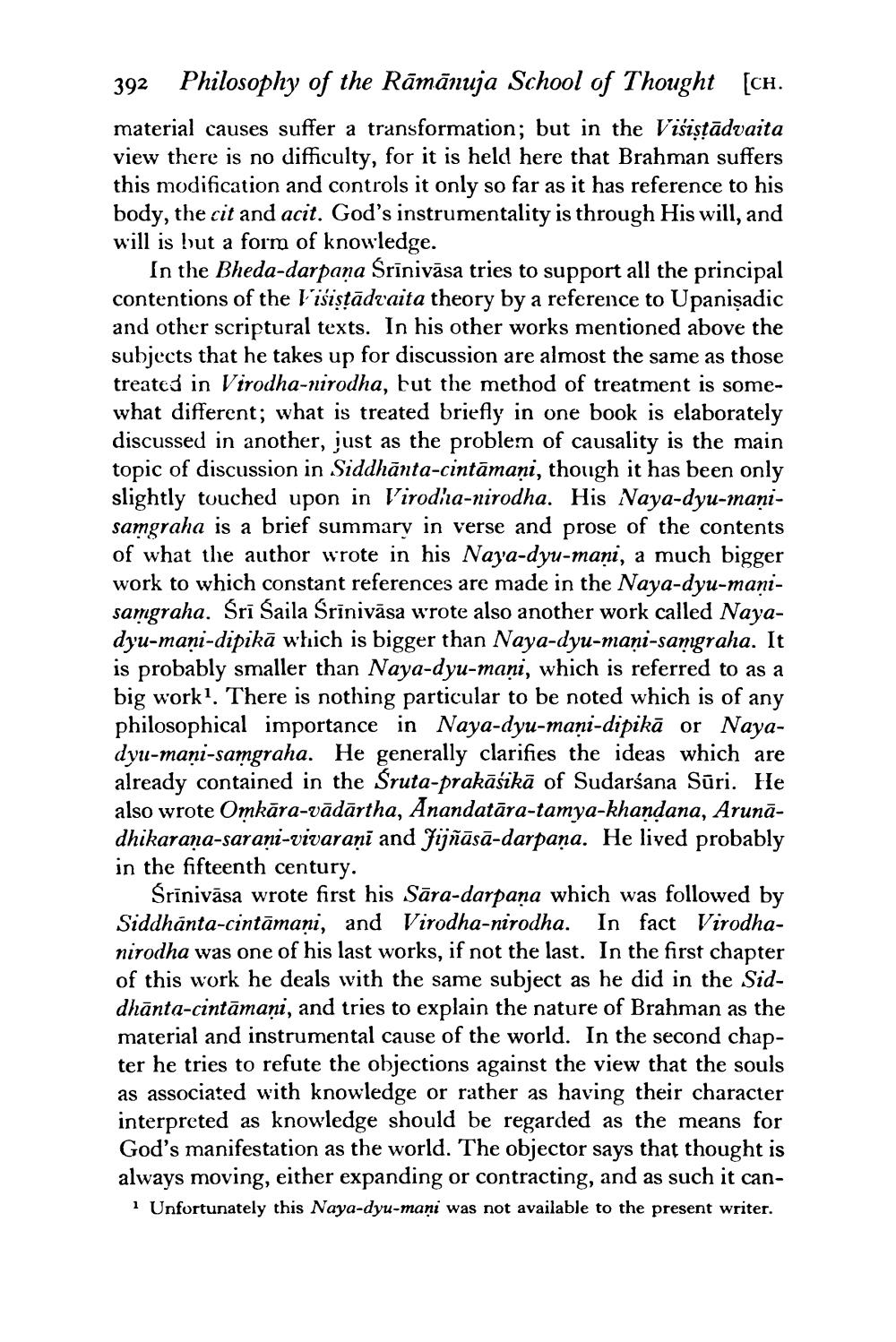________________
392 Philosophy of the Rāmānuja School of Thought [ch. material causes suffer a transformation; but in the Višistādvaita view there is no difficulty, for it is held here that Brahman suffers this modification and controls it only so far as it has reference to his body, the cit and acit. God's instrumentality is through His will, and will is but a form of knowledge.
In the Bheda-darpana Srīnivāsa tries to support all the principal contentions of the l'išistādvaita theory by a reference to Upanişadic and other scriptural texts. In his other works mentioned above the subjects that he takes up for discussion are almost the same as those treated in Virodha-nirodha, but the method of treatment is somewhat different; what is treated briefly in one book is elaborately discussed in another, just as the problem of causality is the main topic of discussion in Siddhānta-cintāmaņi, though it has been only slightly touched upon in l'irodria-nirodha. His Naya-dyu-manisamgraha is a brief summary in verse and prose of the contents of what the author wrote in his Naya-dyu-mani, a much bigger work to which constant references are made in the Naya-dyu-manisamgraha. Sri Saila Srinivāsa wrote also another work called Nayadyu-mani-dipikā which is bigger than Naya-dyu-mani-samgraha. It is probably smaller than Naya-dyu-mani, which is referred to as a big work?. There is nothing particular to be noted which is of any philosophical importance in Naya-dyu-maņi-dipikā or Nayadyu-maņi-samgraha. He generally clarifies the ideas which are already contained in the Sruta-prakāśikā of Sudarśana Sūri. He also wrote Omkāra-vādārtha, Anandatāra-tamya-khandana, Arunādhikarana-sarani-vivarani and Jijñāsā-darpana. He lived probably in the fifteenth century.
Srinivasa wrote first his Sāra-darpana which was followed by Siddhanta-cintāmani, and Virodha-nirodha. In fact Virodhanirodha was one of his last works, if not the last. In the first chapter of this work he deals with the same subject as he did in the Siddhānta-cintāmani, and tries to explain the nature of Brahman as the material and instrumental cause of the world. In the second chapter he tries to refute the objections against the view that the souls as associated with knowledge or rather as having their character interpreted as knowledge should be regarded as the means for God's manifestation as the world. The objector says that thought is always moving, either expanding or contracting, and as such it can1 Unfortunately this Naya-dyu-mani was not available to the present writer.




